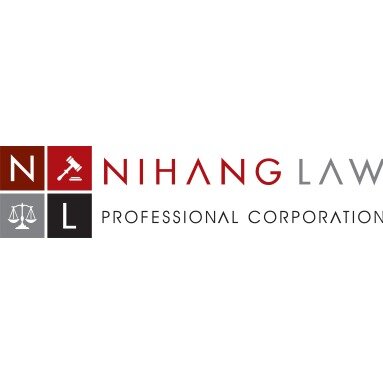Best Collaborative Law Lawyers in Brampton
Share your needs with us, get contacted by law firms.
Free. Takes 2 min.
Free Guide to Hiring a Family Lawyer
List of the best lawyers in Brampton, Canada
About Collaborative Law in Brampton, Canada
Collaborative Law in Brampton, Canada is a legal process where individuals can work together with their lawyers to resolve disputes, such as family law matters, in a cooperative and non-adversarial manner. This approach allows parties to come to mutually beneficial agreements without going to court.
Why You May Need a Lawyer
You may need a lawyer in Collaborative Law in Brampton, Canada if you are facing a family law issue, such as divorce, child custody, or support matters, and wish to resolve it amicably through collaboration. A lawyer can provide legal advice, negotiate on your behalf, and ensure that your rights are protected throughout the process.
Local Laws Overview
In Brampton, Canada, Collaborative Law is governed by specific rules and regulations that outline the procedures and requirements for resolving disputes through collaboration. It is important to be familiar with these local laws to ensure a smooth and successful collaborative process.
Frequently Asked Questions
1. What is Collaborative Law?
Collaborative Law is a legal process where parties work together with their lawyers to reach agreements without going to court.
2. How is Collaborative Law different from traditional litigation?
In Collaborative Law, parties commit to resolving their issues outside of court through cooperation and negotiation, whereas litigation involves adversarial proceedings in court.
3. What types of disputes can be resolved through Collaborative Law?
Common disputes resolved through Collaborative Law in Brampton, Canada include family law matters, such as divorce, child custody, and support issues.
4. How does the Collaborative Law process work?
Parties and their lawyers meet in a series of collaborative sessions to discuss and negotiate terms of agreement. If an agreement is reached, it is formalized into a legally binding document.
5. Do I need a lawyer for Collaborative Law in Brampton, Canada?
It is highly recommended to have a lawyer represent you in the Collaborative Law process to ensure your rights are protected and your interests are advocated for.
6. How long does the Collaborative Law process take?
The timeline for resolving a dispute through Collaborative Law can vary depending on the complexity of the issues involved and the willingness of parties to cooperate.
7. What are the benefits of Collaborative Law?
Benefits of Collaborative Law in Brampton, Canada include faster resolution, cost-effectiveness, privacy, and the ability to maintain control over the outcome.
8. What happens if the parties cannot reach an agreement through Collaborative Law?
If an agreement cannot be reached, the parties will need to seek alternative dispute resolution methods, such as mediation or litigation.
9. Is the Collaborative Law process legally binding?
Once an agreement is reached in Collaborative Law, it is formalized into a legally binding document that is enforceable in court.
10. How can I find a Collaborative Law lawyer in Brampton, Canada?
You can search for Collaborative Law lawyers in Brampton through legal directories, bar associations, or referrals from friends or family members.
Additional Resources
For more information on Collaborative Law in Brampton, Canada, you can visit the Ontario Collaborative Law Federation website or contact the Brampton Bar Association for referrals to experienced Collaborative Law practitioners.
Next Steps
If you are in need of legal assistance in Collaborative Law in Brampton, Canada, consider contacting a Collaborative Law lawyer to discuss your options and determine the best course of action for resolving your dispute in a cooperative and amicable manner.
Lawzana helps you find the best lawyers and law firms in Brampton through a curated and pre-screened list of qualified legal professionals. Our platform offers rankings and detailed profiles of attorneys and law firms, allowing you to compare based on practice areas, including Collaborative Law, experience, and client feedback.
Each profile includes a description of the firm's areas of practice, client reviews, team members and partners, year of establishment, spoken languages, office locations, contact information, social media presence, and any published articles or resources. Most firms on our platform speak English and are experienced in both local and international legal matters.
Get a quote from top-rated law firms in Brampton, Canada — quickly, securely, and without unnecessary hassle.
Disclaimer:
The information provided on this page is for general informational purposes only and does not constitute legal advice. While we strive to ensure the accuracy and relevance of the content, legal information may change over time, and interpretations of the law can vary. You should always consult with a qualified legal professional for advice specific to your situation.
We disclaim all liability for actions taken or not taken based on the content of this page. If you believe any information is incorrect or outdated, please contact us, and we will review and update it where appropriate.








